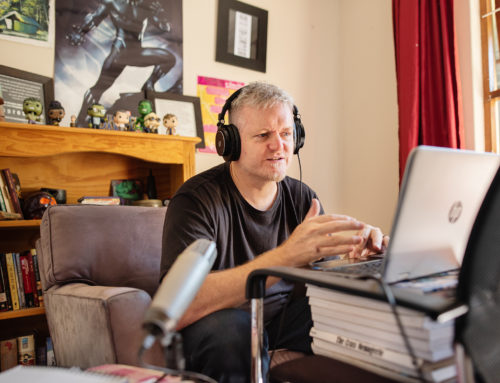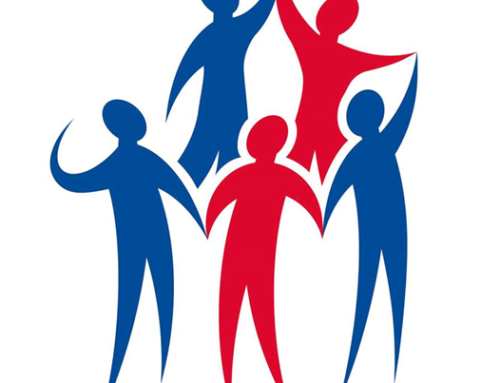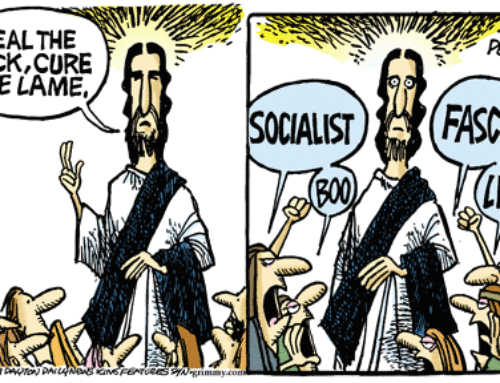This is my friend Rob Davey who lives in Zimbabwe. i have not seen Rob for something like 10 to 15 years i imagine and yet we recently connected and i asked him if he would write a piece for this blog. i have a saying that ‘Quality Shows’ and with some people you just identify that immediately – Rob is one of these people – reading this piece will give you that impression as well. We would do well to have more Robs in the world… or at least to hear their stories shared more often – please pass this around – it is gold! Lessons for South Africa [and others] to learn from experiences in Zimbabwe:
My wife shops in a flea-market in the middle of a township in a rural town in Zimbabwe, she is tall blonde, slim and undeniably white in complexion despite a tan earned by the many hours we spend outside in the sun. She speaks a bit of the local language here, she understands quite a lot more of it than she can speak so she can hear the comments some of the people make as she walks by.
Comments along the lines of, “change the price quickly she can pay more because she is white”, or , “why is she here?, whites don’t belong here”, or better yet, “ I can get her to sleep with me , watch , these foreign murungus (white people), like what we have”.
I understand a lot more of the language and speak a fair amount of it (having been born here and spent most of my life here) and so when I am with my wife I have a very strong urge to hit someone when I hear things like this. I usually avoid this by greeting everyone I see very loudly in the local language so they know I understand, generally things go better afterwards. Quite often the people who don’t make the stupid comments will throw in a little extra with our shopping, a couple of extra avocadoes or tomatoes or bananas, given with a quiet shy smile and a gentle “have a good day” or “thank you for supporting us”.
When we mix with white people later in the day, we hear similar comments , “stupid muntus (derogatory term for a black person), they don’t know how to do anything right”, or “you cant trust these guys (black people), they just lie to you!”, quite often these people are being generous to my wife and I, sharing a meal or a cup of coffee.
We live in a situation mixed with prejudice and generosity. My wife and I live in the middle of this situation, we have black friends and white friends, we find that black people and white people speak in a similarly derogatory fashion to one another or about one another, based on assumptions made due to popular opinion, or their experience of varying incidents that they feel gives them the authority to make sweeping general statements about an entire people group. It doesn’t necessarily make them bad people , it just makes them seem stupid and ignorant, both black and white (and occasionally coloured) lumped uncomfortably in the same boat, and periodically we also find ourselves in this ship that sails to nowhere.
When we do ourselves the disservice of seeing colour as the thing that primarily defines someone else then we are stating that we too are defined by the same thing, it’s not only insulting to other people but to ourselves as it negates or nullifies the myriad of experiences we have had, from birth up until the present, that have made us who we are. Granted some of those experiences may have been a result of someone else’s perception of our value due to our skin colour, but is not the colour that defines us but rather the experience itself.
To deny someone their personhood by labelling them with a colour as a means of attributing some generalised characteristic to them opens the door for the same thing to happen to you. Don’t you hate being labelled or treated in a particular way because you are white? Or black? Or coloured? Don’t you think its unfair when those rules are applied to you? Those generalisations that seem so justified when you say them seem ludicrous when reversed. When you begin to treat people like people, when you begin to treat people in the same way you would expect to be treated , whether you have done good or bad, something changes.
During a particularly unsettled time in our country’s recent past we broke down on the side of the road in an area renowned for politically motivated racial violence. It was a public holiday and there were severe fuel shortages and so traffic was sparse and we had to spend the night on the side of the road. We had water but no food to speak of and were wondering what to do about this when a man walked up out of the darkness and greeted us politely, as custom demands here he waited to be invited into our circle before he addressed us further. He was carrying a small pot of scrambled eggs, some bread and he had another pot containing hot sweet tea, (it was a cold night). He had seen us break down and when he realised that we were staying for the night he set about making us a meal.
There are a few remarkable things about this situation, it would have been politically expedient for him to ignore us or subject us to some kind of abuse, in fact by helping us he opened himself up to being abused by others. He emptied his house of food to feed complete strangers, I know this because I went back to his hut to help him carry his belongings. We were all white and he was black.
Now on the reverse side of this, during the time of violent farm invasions a farmer friend of mine found that over the Christmas period some of the people that had violently invaded his property were stuck out there with no food, he mobilised a bunch of people and bought food and supplies and slaughtered a cow for them and delivered it all to them so that they would have food over Christmas. By doing this he opened himself up to abuse and isolation from his peers undergoing similar trials, it would have benefitted him to make sure the people invading his property had no food so that they would leave. He gave to them when he was experiencing need himself. They were all black and he was white. These are not isolated incidents, this is humanity at its best, and it happens all the time.
Remarkable things happen when we see people beyond their colour, when we see people with hopes and dreams and faults and fears before we see them as black or white or coloured. What we see is humanity as it should be. Whenever we think of colour first as a means of describing anything but the person’s appearance we all lose, immediately. I am living in Zimbabwe, it has ugliness, it has racism in abundance in every direction. It has a great deal of hardship and poverty, and I am grateful beyond measure because when we experience need we can empathise with others who do so too.
We are not called to ignore injustice, racial oppression, or any other of the violations that seem to frequent this beautiful continent. We need to address these things, but we address them simply as people, not as people of any race except that of the human race. We cannot expect people to change if we are not prepared to change ourselves, the responsibility is ours first before it is someone else’s.
[For more posts that look to rally hope for South Africa, click here]







Why when blacks do it, its a “phobia”. When whites do it, its hatred.
Are blacks morally beyond reproach?
Absolutely not. I think it’s just a badly chosen word [i don’t think black people particularly came up with the use of it so perhaps you should ask those who did?] Whatever it is called, the violence and killing coming from whoever it is coming from is wrong and reprehensible. The point is that when we take time to get to know each other and treat each other like we would want to be treated then it doesn’t matter who is what colour as the results are the same and what comes out of Rob’s story is that even in Zimbabwe this is happening from all sides. The majority of people are wanting peace, unity and togetherness and it is sad that it is destroyed or tainted by the minority who are acting in a different and destructive way.
i agree with brett, just a poor choice of words and badly thought out arguments, we (humanity as a whole) have been given the choice to step forward and stop asking “what about them” and realise that “them” is actually “us” as well, there is only “we” (sounds like something out of the matrix :)) racism is a farce for small minded and lazy thinking, no matter who is guilty of it.
Ooh small minded and lazy thinking? Great description Rob.
This is like heart medicine… my tears ran as I read this from the sheer fact our our humanity as people was revealed in such real and practical ways. Thank you Rob for sharing. Thank you Brett for publishing this… I have friends in Mutare who tell similiar stories.
Absolutely. The stories are out there – we just need to see more and more people telling and sharing them…
thanks for taking the time to read this.and thank you brett for posting it, the positive stories are there and there are many. we just need to give them more coverage than the pointless negativity that seems to plague the internet and the news at present.
[…] this story by my mate Rob from Zimbabwe which is hugely positive and encouraging and representative of stuff he is seeing all the time over […]
What concerns me is the cultural differences more so than race differences. Let me explain. In some cultures there is Ubuntu, however this applies only to the family, tribe, village and larger areas. It doesn’t mean a blanket, “I’ll share with you” philosophy. In general, blacks in South Africa work enough to have a meal and shelter. Once this is reached, they relax and are content. There is nothing wrong with this per se, but in a mixed cultural climate it can cause differences and inequality. Whites tend to want more possessions, better car, house, gadgets, internet, TV and holidays. If you speak to a black person, they want a house (any house), a cell phone, maybe a car (maybe), food and to relax and play soccer or watch it. The whites view the world differently and work in ways that minimize labor. The blacks work in many cases harder physically and stop when they have enough. Over time these differences accumulate and we see whites with far greater wealth versus blacks who are living in squalor.
It is worrying as only some blacks have the mindset to work more cleverly, study more, work towards a far better lifestyle. Even among blacks that know the modern lifestyle, they still would prefer the more rural village lifestyle.
I think the cultural aspect is what we should be addressing, and not so much race. If you look in London for example, the blacks are much the same as the whites as they have grown up the same. In Africa, the cultural aspect is still very much entrenched and this leads to inequality as the two lifestyles (modern vs traditional) clash when in close proximity.
The blacks resent the whites for what reason? Sure apartheid was wrong, but then so was forcing blacks into the modern age. Perhaps there was merit to being separate, but not forced separation. I mean perhaps there should not have been interference with their culture. Its a difficult question and someone could maybe rephrase this. I love the African culture, the tribal customs, the family structures the free time and being with nature. I actually prefer it to the modern, but I too am stuck in my traditional modern culture. I think the clash of cultures and the preservation of culture are like two trains. How do we catch the train and how do we stop a train smash? The only way to preserve a culture is in isolation. You cannot for example be a Zulu in leopard skins and be happy in a big city like Johannesburg or Cape Town. You cannot be a Yuppie with a laptop and be happy in Lesotho mountains.
We need to look at culture and ask people to decide if they want the modern lifestyle, the rural lifestyle, where they want to live and what exactly they want. A rural lifestyle near a big city cannot work. Wanting ubuntu in a modern context will not work as there are too many economic factors at play. Education for example in the modern way is not useful to one who prefers a rural lifestyle in most cases – why learn about science and math when you only want to raise cattle. A traditional education would be better as it teaches the land, animals, farming.
I know with my own workers, they are happy once they reach enough money for the month. Then they take off or call in sick – way too often. They are content and want time off. Once the money runs out, they are back. I offer them old books, paid for teaching at a local library, but they are not too interested.
If they want ubuntu, culture, tradition, then it might be better to live in a rural area. If they want the modern lifestyle, then they must know that education is important, working cleverly is important.
[…] this story by my mate Rob from Zimbabwe which is hugely positive and encouraging and representative of stuff he is seeing all the time over […]